“Christians are now better at thinking biblically about politics than 25 years ago”
An interview with Julia Doxat-Purser, the socio-political representative of the European Evangelical Alliance. “Our main working style in Brussels is behind the scenes and face to face influence, in personal conversations with the people who are shaping the ideas”.
BRUSSELS · 15 JANUARY 2019 · 10:00 CET
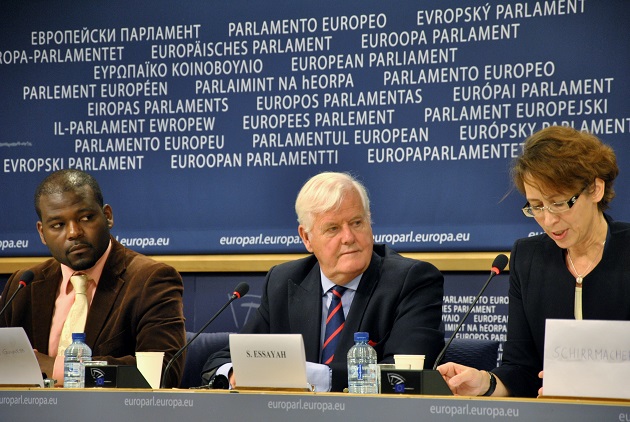
The Brussels office of the European Evangelical Alliance has always had a small team, but for 25 years it has been in a walking distance from the major EU institutions.
Julia Doxat-Purser was the first person representing 23 million European evangelical Christians in the Belgian city.
As the EU grew its membership and influence, “everybody was coming to seek to influence the future direction of the EU and the decisions that were being made”. In this context, the EEA wanted “to make sure that evangelicals from across Europe would be represented”.
Back in 1994, “there were very few evangelicals who were interested in politics and society issues, there was a common view that political involvement will be a distraction away from evangelism”.
But “God places people into the world of politics for His kingdom purposes, and we need to pray for these people”, Doxat-Purser says in an in-depth interview with Evangelical Focus. [Listen audio version]
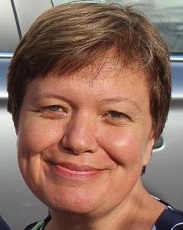
Answer. Yes, I got married 25 years ago, just before Christmas. And two weeks later, after the honeymoon, I had the privilege to open the EEA office in Brussels, where I worked for 10 years.
It was exciting putting those two life-changing things together, and the opening of the Brussels office was an answer to prayers of several years. All the change was exciting.
I have to admit that a few weeks in, I was feeling exhausted and stressed - I prayed and I was relieved. It was not being married what stressed me, it was the new job; but when you start a new job, I think it is quite normal to feel a little unsettled to start with.
Q. How was the city of Brussels and the whole scenario of the European Union different 25 years ago compared to now?
A. It was very different. In 1993, just before we opened the office, then is when the European Community officially became a European Union. The Maastrich Treaty, the single market and all the things we take for granted now were completed. Back then there were only 12 Member States, but there were great preparations for the big expansion to come.
There was a very positive and dynamic atmosphere. The big buildings, the European Parliament building and the Council Ministers building that you see on your television screens, on the news programs, did not exist yet.
There was no use of the Internet, there was barely ‘e-mail’, you had to physically go and collect papers.
I remember one of the most precious documents was the data of all the members of the staff of the European institutions. Outsiders like the European Evangelical Alliance were not officially given a copy, but we had friends on the inside and when they got a new copy, we got their old one - that is how it worked.
There were very few Christian organisations in Brussels back then, there were official ecumenical bodies, those directly connected to the Catholic, Orthodox or Protestant churches.
Q. Why did the EEA decide evangelical Christians should have a voice in Brussels?
A. Before we started our office, there was the UK Christian organisation called CARE, they had an office in 1992 and they were doing a great job in certain issues, but the EEA was the first body evangelical and also pan-European organisation to set up in Brussels.
The reason why we opened it was simple: basically, the EU was becoming more and more important. There was more power, and there was more potential for the EU to do good or not to do good, and everybody was coming to seek to influence the future direction of the EU and the decisions that were being made.
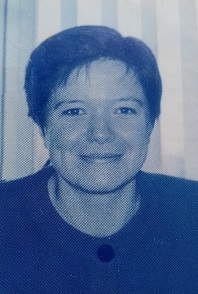
CARE was doing a good job on a smaller agenda, representing British evangelical Christians, but in the EEA we wanted to work in other issues as well, and to make sure that evangelicals from across Europe will be represented.
Q. Nowadays, how does the Brussels office look like? How many people work there?
A. Brussels is a very expensive place, so that we do not have a big office or a big staff team. Over these 25 years, we have moved premises 3 times, we have always been within a walking distance from the major EU institutions.
We always try to share with other Christian organisations, in order to save costs and support one another. We shared the premises with CARE many years.
Sometimes our offices have been very modest. Once it was above a very noisy pub, and the smell of beer came from the floorboards, which it was not very pleasant. But even though the office has been modest, it has been enough, and I like to thank all the people through these years who gave us furniture, equipment, and provided funds.
There has always been one member of the staff. The present Brussels representative is Arie de Pater, but we have always had the privilege to have wonderful volunteers coming to help as interns and assistants. Huge thanks to them.
Q. In these 25 years, you probably have heard sentences like “Christians should not get into the dirty world of politics”. What is your answer?
A. I start by saying: ‘Let’s not think that everyone involved in politics is caught up in the dirt’, because there are many politicians and civil servants whose genuine motivation is to make the world a better place, and that is really what they are trying to do.
Many of these people could earn more money if they went into business, into other sectors than to work in public service, and there are many Christians involved in politics, doing a good job.
But, yes, politics can be dirty, it can specially be dirty because it involves power, and power is tempting. People are attracted to politics for wrong motives: the power, the prestige, the opportunity to benefit themselves and the people who are like them.
But if politics is dirty, it is not just the responsibility of the politicians, we all share the responsibility. Jesus said that Christians were salt and light. Salt is used to preserve food, if food gets rotten it is because not enough salt was added. And the world is dark if there is not enough light.
If the world of politics ends up rotten and dark, we have to ask ourselves why. It needs more salt and light, it needs Christian praying, and we are commanded by the Scriptures to pray for our leaders: including leaders we do not like, including maybe institutions we do not like, and we need Christians working in politics.
The Bible is full of stories of God children serving in very pagan places, people like Nehemiah, Daniel and Joseph. God places people into the dirty world of politics for His kingdom purposes, and we need to pray for those people.
Politics is dirty, the involvement is hard, but that is not a reason for not getting involved, but a reason for getting involved with humility, depending on Christ, remaining in Him.
I think that, if we are involved in politics, we should examine our own hearts repeatedly, because it is easy to start getting proud, or feeling rather pleased with ourselves, because we have nice clothes, we go to parties with powerful people, or we have a posh car.
We can easily just begin to start really hating those who are on the other side, and we become rude, aggressive and judgemental. That is very easy to do if they are throwing things back at us and we correspond.
Politics has a lot of corruption, and it is easy to get caught up in that in little ways that become big ways.
Over the years, it has been a huge privilege to know Christians who have stood up to be very different. Sometimes that includes losing their jobs, because they were wiling to stand up against corruption.
Politics is dirty, but it needs Christians working within it. Paul said all of us are Christ ambassadors, Christ send us out into every area of society to represent Him and to be like Him. But if we are to be like Him, that means we will be radically different.
If Christians are involved in politics, they should stand out to be very different from those around them, and that is not easy.
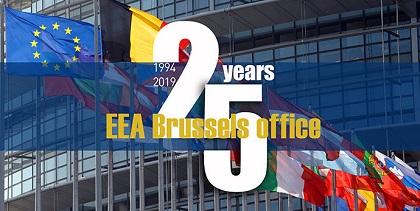
Q. Are Christians more capable of thinking biblically about politics now than then?
A. The quick answer is yes. Back in 1994, there were very few evangelicals who were interested in politics and society issues, there was a common view that political involvement will be a distraction away from evangelism.
I would argue that, while that can be the case, being involved in social and political issues is part of our evangelism, of our gospel witness, and we should engage, always remembering that the gospel is paramount.
Another reason why people did not use to engage, is because many nations in Europe had a strict separation of church and state, and evangelicals bought into the idea that they should not get involved. But if they do not get involved, we are holding back the salt and light benefit that we could have, as I mentioned before. That is going to lead to negative consequences.
It is not that the EEA were the pioneers, there were great examples back then. Especially in the UK, the EAUK did a great work; there has been a long history of evangelicals in the Netherlands being involved in politics. But we have seen improvements overtime because the EEA has been seeking to inspire and teach, and then to equip Christians to think biblically about politics, and to encourage them to be involved.
The Bible is full politics and we are commanded to speak up to defend the widow, the orphan, the foreigner. Those three kinds of people symbolise the most vulnerable.
We are commanded to fight for justice, to treat workers and business clients fairly. The Bible has so much to say about how society should be run. The simple phrase “Love your neighbour” has immense social and political implications.
Christians are now better at thinking biblically about politics than 25 years ago, but we have still so much to learn. The world keeps changing, it is getting more confusing, we should never presume that we understand God perspective on things, we need to keep wrestling with Scriptures and discuss with one another.
There are many more Evangelical Alliances, many more Christian NGOs campaigning, many more individual Christians working in the public life, many more churches serving their communities, serving the vulnerable, the poor, etc, getting involved practically. It is a fantastic work that it is honouring Christ.
But I need to say the negatives as well. Sadly, academic studies show that most Christians still generally think about politics in the same way as their non-Christian neighbours.
They may have a different opinion on a few ethical issues, but generally they think the same, they believe politicians in the media are the same way, they pick their political side often motivated by what is going to affect them and their families.
They do not have a comprehensive biblical worldview for looking at their role in life, so I think we have a lot of work to do to really understand the world from a biblical worldview.
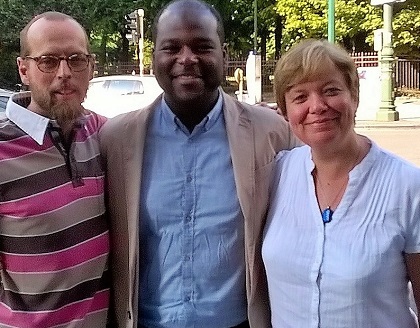
Q. What are some projects or collaborations of the EEA with other organisations that you are especially happy about?
A. I was in Brussels just for 10 years. The thing I was involved in that gave more work but also the greatest joy, was to work to change a directive, a law that the EU was proposing to prohibit any discrimination in employment, in the workplace.
This was a good idea, except that no one seems to understand the need for faith communities to have certain exceptions: a church would want a church leader to be a Christian, a synagogue would like their rabbi to be Jewish. And that applies to a few other jobs as well.
Faith communities needed to be able to reserve jobs to people of their faith. The EEA worked for more than a year to campaign on this, talking to the European Comission, the European Parliament, and then also to the members state governments, because they all needed to decide unanimously.
Collaborating with several national Evangelical Alliances was essential on this. In the end, the final text was changed and when the particular job completely justify it. When the employer has a very clear faith ethos, then, that organisation can choose to employ someone of their faith.
After that, I came back to the UK. A priority all the way through for the EEA is the freedom of religion and belief, not just reacting to problems, but mainly proactively trying to convince the EU to understand it and to prioritise it.
EEA was proud to be one of the founder members of EPRID, which is the European Platform against Religion Intolerance and Discrimination.
We realized that to convince the EU, to take religious freedom seriously, we needed to speak their language, and we needed to be seen, to stand up for religious freedom for everybody, not just for Christians.
That is why EPRID was created, which is a partnership opened to NGOs of any faith or no faith; because of that, suddenly all the doors opened. EPRID has been hugely successful in getting the attention and respect of the EU institutions, sometimes in very significant ways.
The EEA’s main working style in Brussels is behind the scenes and face to face influence, in personal conversations with the people who are shaping the ideas. Probably the most significant conversations we had, has been about persuading the EU to prioritise freedom of religion.
The External Action Service of the EU, which is like the foreign affairs department, decided a few years ago to write official guidelines on religious freedom. They would send them to their offices around the world, so that all the staff around the world would understand to prioritise and respond properly when religion freedom issues came up.
The civil servants wanted these guidelines, but they came back to the EEA and all the partners included in EPRID, and said: “What do you want in the guidelines? What should be in that piece? Help us to write those guidelines”, and that is what happened.
It was fantastic to see that the trust was there.
Q. What about religious freedom inside the EU?
A. We want to see the EU prioritising and improving religious freedom within the EU. They know there are problems, and they know they do not really have the right to put pressure on Iraq or Saudi Arabia, if they have problems within.
The kind of problems we see now within the EU are what I would call traditional problems, but there is also a new trend in the last years. As Member States become concerned about radical Islam, they do not want to see new mosques opened. Therfore, they stop new mosques from being opened, but then they realise they cannot just discriminate Muslims, and they end up stop any religious building being opened.
There is also the problem of Christian asylum seekers being deported. Immigration officials are under a great pressure to deport as many asylum seekers as possible, because of the political pressure. Therefore, when they seek to asses whether someone is a Christian, they do not investigate fairly. Or maybe it is clear that that person is a Christian, but they do not want to take seriously the likelihood of persecution if the Christian was returned to a place like Afghanistan.
There is this injustice going on, and people are being put in great danger .
Then in Switzerland, not within the EU, but within the wider European family of nations, since a year or so ago, Christian hospitals and care houses are now obliged to allow teams to come into their premises, to end the life of a patient if that patient has requested euthanasia They wanted to be able to say no, and they would facilitate the patient to leave the building and go somewhere else, but they lost the case, so that they cannot escape to euthanasia happening on their premises, even tough they strongly object euthanasia on principle.
Q. Christians have all kind of opinions on a range of political affairs. How do you decide on which issues the EEA will take a clear stand?
A. The EEA can only speak out when we know that most of our members agree, when we believe it is very clear what the Bible says about something.
In practice, that means there is much we cannot talk about, and that can frustrate Christians who say: ‘Why are you not talking about this issue?’ And I say: ‘Well, Christians do not agree’.
The socio-political team of the EEA is me and our new Brussels representative, Arie de Pater. But we do not get to decide what the politics of the EEA will be.
Every possible position goes to a very careful authorisation process by a small group of evangelical leaders from across the continent, who represent the members. When we come out with a policy, it gets checked a lot before we can start talking about it.
But we are confident about defending and promoting religious freedom for all, about promoting a biblical perspective on a grace-filled promotion of marriage, family, gender and sexuality, so we are about to publish a new paper on LGBT issues, and we published a paper on gender identity in 2017.
Two years ago we issued a paper connected to the refugee crisis in Europe. The issue of refugees and migration is a bit more divisive, and evangelical Christians are on a bit of spectrum on this.
But we found we needed to say something, so that we work hard to consult evangelicals we knew who were from different parts of that left-right spectrum, but we knew they always seek to be grounded in biblical thinking, rather than just having an opinion.
When we could get them to agree, we knew we were on the way of having a balanced paper, which was biblical and worth to publish it, it was not bland, it was challenging.
Among other things, it says that, judging by biblical and legal standards, there has been much failure in how Europe and European nations have responded to refugees and migrants.
It talks about the clear biblical requirements of the local community to welcome, but also of the foreigners to integrate. It challenges by saying that it is a requirement to save lives and act with compassion.
It includes the knowledge that a nation cannot allow everyone in who wants to come in, that does not work practically or politically, it is just no possible. That means nations do have the right to say they do not want to take any more migrants or refugees in.
However, they do not have the right to do that if they have not actually done a bit of help. We also dare to say that scapegoting of migrants and asylum seekers is bad, but also asylum seekers and refugees must behave well - and sometimes there is bad behaviour.
We tried to speak in ways that some people may find challenging, but as we consulted, we were seeking to be balanced with evangelicals from the left and from the right.
Q. Are there any people you would like to mention as key in the work in these first years of history of the EEA office in Brussels?
A. I would like to thank Jeff Fountain, who back then was European director of YWAM. He came to Brussels on 1991, realizing that the EU was growing in importance, he met me and few others who were already there, and he began to hold important annual conferences to bring evangelicals together, to wake up our responsibility.
At the same, our staff from the Evangelical Alliance in the UK, who listened to us and said: “Come on, yo go ahead and open an EEA office there in Brussels”.
I would like to thank Stuart McAllister, who was the General Secretary of the EEA, who responded to what was going on, and said: “Yes, let’s open the office”.
I would like to mention Martyn Eden, who worked for the EAUK, he was my mentor and guided me in how to do work.
Over the years, there have been many civil servants working in the European Comission, and members of the European Parliament, who worked with us to bring about a biblical perspective on politics and, just occasionally, being able to change things.
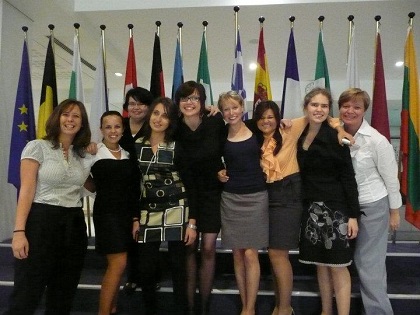
Q. What would you say to young Christians, students who have the desire to serve God in the field of politics? How would you encourage them to bring together their faith and their interest in society?
A. I will encourage them to do it, and find Christian friends to grow with them in their journey, praying together, looking at the Scriptures together, being accountable to one another, encouraging one another.
There are also Christian mentoring and training programs for people who want to work in politics, I they cannot find one, they can contact us, and we will do our best to connect them with one. I am involved in one with IFES called Cross-current.
But it is not just young Christians, it is not just those feeling they really want to work in politics, all Christians are going to be involved in politics to some extent, because we are all called to pray for our leaders, the one we like and the ones we do not like.
If we live in a democracy, we all have a vote, we have to use it well, responsibly and bravely. We can all open our Bibles and really start looking at it to find a worldview on how society should be run.
Sometimes we despair of all the political parties on offer, the candidates on offer, that can be depressing. But let’s pray, and let’s encourage and equip new people to enter politics.
Published in: Evangelical Focus - europe - “Christians are now better at thinking biblically about politics than 25 years ago”
